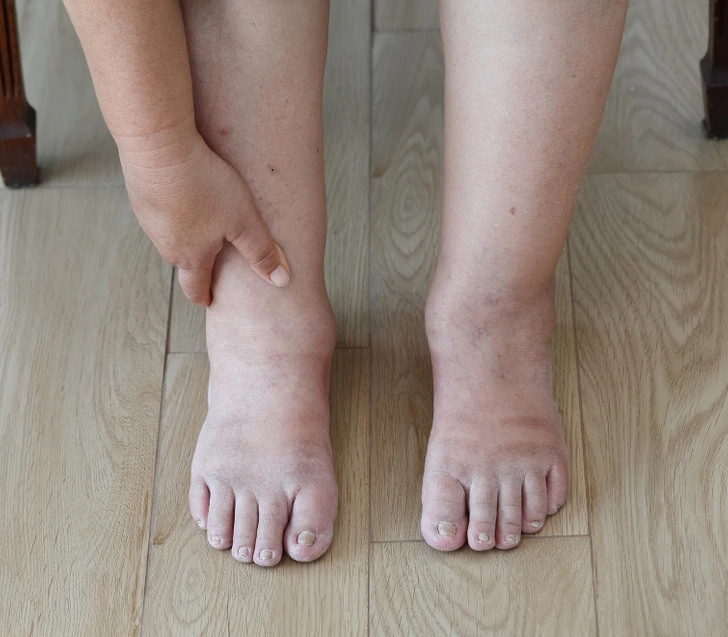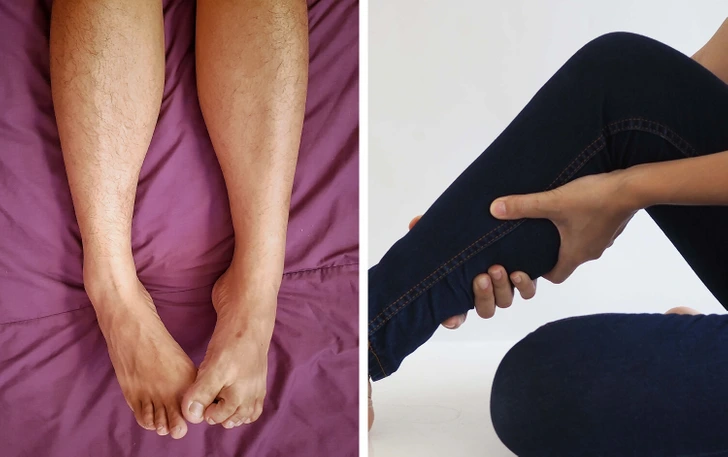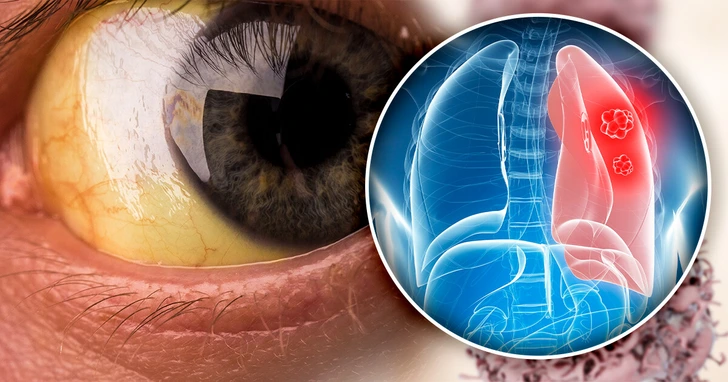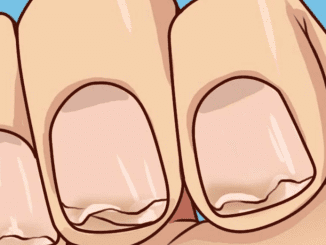We often take our bodies for granted, expecting them to bounce back from anything we throw at them. But sometimes, our bodies communicate more serious issues that demand attention. These signals might seem minor at first, but if they persist, it’s wise to consult a doctor. Let’s dive into the 14 subtle red flags your body might be using to alert you when something’s wrong.
1. Swollen Ankles: Is It a Heart or Circulation Problem?

Swollen ankles are commonly associated with pregnancy, but for those not expecting, this could signal underlying issues. Poor blood circulation, heart disease, or an underactive thyroid could be the culprits. On a less serious note, consuming too much salt can also cause fluid retention, leading to swelling.
2. Crawling Sensation in Legs: Could It Be Restless Leg Syndrome?
Have you ever felt an unsettling crawling or creeping feeling in your legs? If so, you might be experiencing restless leg syndrome (RLS), a condition characterized by uncontrollable urges to move your legs, often at night. RLS is a chronic disorder that disrupts sleep and overall quality of life, making it important to seek medical advice.
3. Food Intolerance: A Sign of Digestive Trouble
Suddenly finding yourself intolerant to foods you once loved? This might be more than just a minor inconvenience. When the digestive system is off-balance, it struggles to break down food effectively, leading to reactions such as nausea, gas, cramps, or diarrhea. This can be a sign that your gut health needs attention.
4. Thickening of Skin: Hormones, Eczema, or Allergies?
Don’t underestimate the significance of skin changes. If your skin becomes thick and itchy, it could be a symptom of hormonal imbalances, eczema, or allergies. Persistent skin thickening should be evaluated by a dermatologist, as it could indicate deeper health concerns that may require blood tests.
5. Yellowish Skin and Eyes: Could It Be Jaundice?
A yellowish tint to the skin and eyes is often linked to liver problems and jaundice, caused by high bilirubin levels. Bilirubin is a bile pigment that, when not properly eliminated, can cause a yellow discoloration of the skin and the whites of the eyes. Jaundice requires immediate medical attention to assess liver health.
6. Handwriting Changes, Loss of Smell, and Vivid Dreams: Early Signs of Parkinson’s?
Parkinson’s disease is more than just tremors. Early symptoms can include changes in handwriting, a loss of smell, and intense dreams. If you notice these symptoms along with slowed movement, it’s crucial to consult a neurologist, as early diagnosis can significantly impact treatment outcomes.
7. Unexplained Bruises: Vitamin Deficiency or Something More?
Do you often find random bruises on your body without recollecting any injuries? Easy bruising could be due to vitamin deficiencies, particularly in vitamins C or K. However, it could also indicate more serious conditions like blood clotting disorders, making a visit to the doctor essential for diagnosis.
8. Excessive Sleepiness: Is It Hypersomnia?

Feeling sleepy all the time, even after a good night’s rest? This could be hypersomnia, which can be related to autoimmune disorders or other serious health issues. Consuming alcohol before bedtime can worsen this problem, making it even more important to understand and manage the root cause.
9. Clubbed Fingernails: A Sign of Lung or GI Problems?
When fingernails start curving around the fingertips, it’s known as “clubbing,” which can be associated with chronic lung issues or gastrointestinal diseases. If left untreated, the condition can worsen, making the nails visibly enlarge and curve downward. A medical examination is recommended to identify the underlying problem.
10. Eye Color Changes: Is It High Cholesterol?
If you spot a white or grey ring around the cornea of your eyes, it might be an indicator of high cholesterol, especially if you’re under 45. While the ring itself is harmless, it’s a sign that your cholesterol levels might be high, necessitating a lipid profile test.
11. Random Muscle Twitches: Stress or Something More Serious?

Muscle twitches can happen due to stress, dehydration, or physical exhaustion. However, if they persist, they may indicate neurological disorders or kidney disease. It’s best to monitor these twitches closely and consult a healthcare provider if they become frequent.
12. Intense Salt Cravings: A Sign of Iron Deficiency?
Craving salt is normal, but when it becomes uncontrollable, it might indicate something more serious, like iron deficiency, anemia, dehydration, or even premenstrual syndrome (PMS). Addressing this craving with medical advice is a wise step toward identifying any underlying issues.
13. Craving Ice: Is It Pica or Anemia?
Have you ever had an urge to chew ice? While it might seem harmless, this craving can be linked to iron deficiency or anemia, according to research. Chewing ice, also known as “pica,” often signals a need to have your blood tested and possibly start iron supplements.
14. Yellow Eyes and Skin (Jaundice): Liver Problems?

Jaundice turns the skin and the whites of the eyes yellow, indicating potential liver problems. This condition should never be ignored, as it’s often a sign of liver disease or other serious health issues. Immediate medical evaluation is necessary to identify the root cause and start treatment.
Conclusion: Listen to Your Body’s Signals
Your body is like a finely tuned machine, sending signals when something’s not right. From swollen ankles to unexplained bruises and yellow skin, these red flags are your body’s way of saying, “Pay attention!” It’s always better to be proactive about your health. So, if you notice any of these warning signs persisting, don’t hesitate to visit a doctor. After all, early detection can often mean the difference between a simple fix and a more serious issue. Always listen to your body—it’s smarter than you think!


